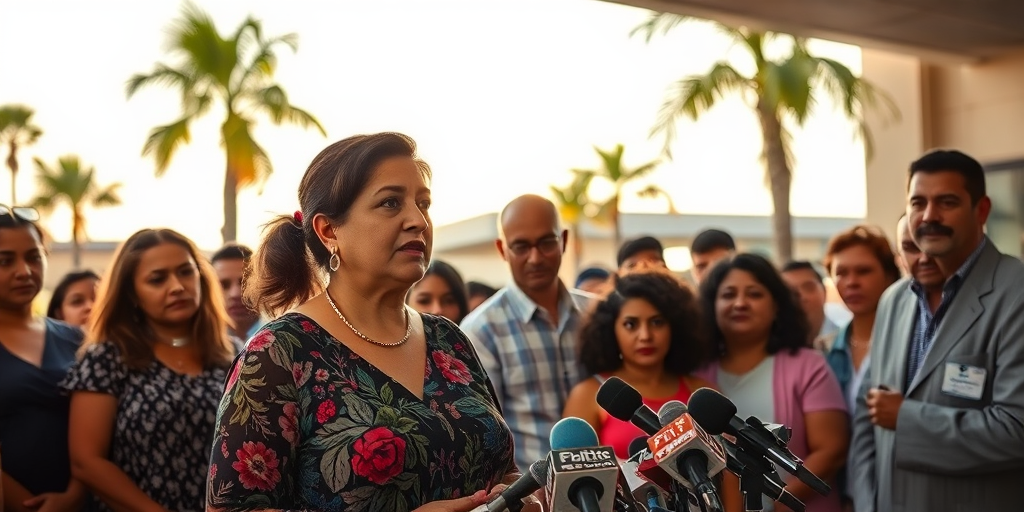**Unlicensed Dental Work Nearly Kills McAllen Woman: A Cautionary Tale for Rio Grande Valley Residents**
A McAllen woman is recovering from a life-threatening ordeal after receiving illegal dental care. The harrowing experience underscores significant health risks for Valley residents, typifying a recurring issue in unlicensed medical practices in the Rio Grande Valley (RGV). Local leaders and healthcare experts are sounding alarms about the urgent need to address such risks in South Texas.
**The Incident: Unlicensed Practice Leads to Emergency**
“Maria” (name changed for privacy), a resident from Hidalgo County, recently sought budget-friendly dental care due to financial constraints, resulting in a near-fatal encounter. Enticed by a reference from a friend and a low cost—$100 per tooth—she underwent three tooth extractions in the unsanitary environment of a house kitchen. Conducted by an unlicensed practitioner without the safety measures afforded by a proper medical facility, Maria’s decision quickly resulted in dire consequences.
Following the procedures, Maria experienced excruciating pain, swelling, and difficulty opening her mouth. Recognizing the severity of her symptoms, Dr. Joey Cazares from McAllen Dental Associates, who was contacted by Maria’s friend, urged immediate medical intervention. Her case was described as potentially fatal had she delayed seeking professional medical care.
**Expert Voices: The Dangers of Unlicensed Medical Work**
The case has drawn attention from healthcare professionals and community leaders advocating for increased awareness amongst RGV residents regarding unlicensed medical practices. Dr. Carlos Cruz, an oral and maxillofacial surgeon, stresses the importance of regulated healthcare. “Engaging with unlicensed practitioners can have severe health impacts, including life-threatening infections that professionals like us are trained to prevent. Patients must utilize credentialed, reputable sources to ensure their safety,” Dr. Cruz emphasized.
The financial allure of cheaper options often blindsides individuals who may be unaware of the full extent of the risks involved. Dr. Cazares added, “We deeply sympathize with individuals trapped by economic pressures but stress the unpredictability of health outcomes when avoiding certified medical practices.”
**Local Impact: An Issue of Public Health and Safety**
This incident is not isolated. The persistence of unlicensed dental and medical practices within the Valley highlights a public health concern that regionally resonates in South Texas. Low-income and immigrant communities, in particular, are vulnerable to fraud and substandard care procedures, given their search for affordable healthcare alternatives.
McAllen City Councilmember Lucia Garcia warns that these occurrences not only endanger individual health but strain emergency medical services, often financially unprepared for critical incidents resulting from unlicensed practice complications. Garcia said, “Our community must prioritize public education on these issues to minimize recurring instances.”
**Addressing Long-standing Issues: Community and Legal Responses**
Maria’s experience mirrors a broader pattern of similar health-related dangers perpetuated by unlicensed operatives across the RGV. Previous community meetings have iterated on the regulatory shortcomings enabling such practices to surface repeatedly. Strengthened regulatory frameworks and stricter enforcement, reflective of a necessity, are being scrutinized for potential legislative motion.
Beyond regulation concerns, accessible healthcare alternatives must be provided to demotivate the pursuit of illegal services. Dr. Teresa Galvan, a healthcare policy analyst, pointed out, “Systematic changes ensuring affordable treatment options for underprivileged groups and disseminating robust community awareness campaigns are essential to safeguarding community health.”
**Future Implications: Improving Awareness and Support Systems**
Looking forward, the incident highlights the prized role local organizations and educational bodies could play in equipping residents with knowledge about trusted healthcare choices and warning about high-risk options. Educational workshops, information hotlines, and outreach initiatives are pivotal to demystifying healthcare choices and reaffirming the importance of safety and certified professional care.
The local healthcare system’s challenge lies in pre-emptively identifying vulnerable population segments and ensuring those individuals can access adequate resources and information. Encouraging dialogues between residents, health care providers, and governing bodies could build a collaborative environment conducive to fostering enhanced public health security.
**Community Resources and How to Get Help**
For Valley residents eager to learn more or communicate concerns, contacts such as the City of McAllen’s health services department offer resources and guidance tailored to public health. Residents are encouraged to report any suspicious or illegal health practices to local authorities to mitigate health risks.
Maria’s story serves as a critical reminder of the assurance that licensed and accredited healthcare providers offer. With the RGV news spotlight effectively utilizing this cautionary tale, stakeholders are hopeful that increased awareness will culminate in heightened safety and vigilance for South Texas communities.







